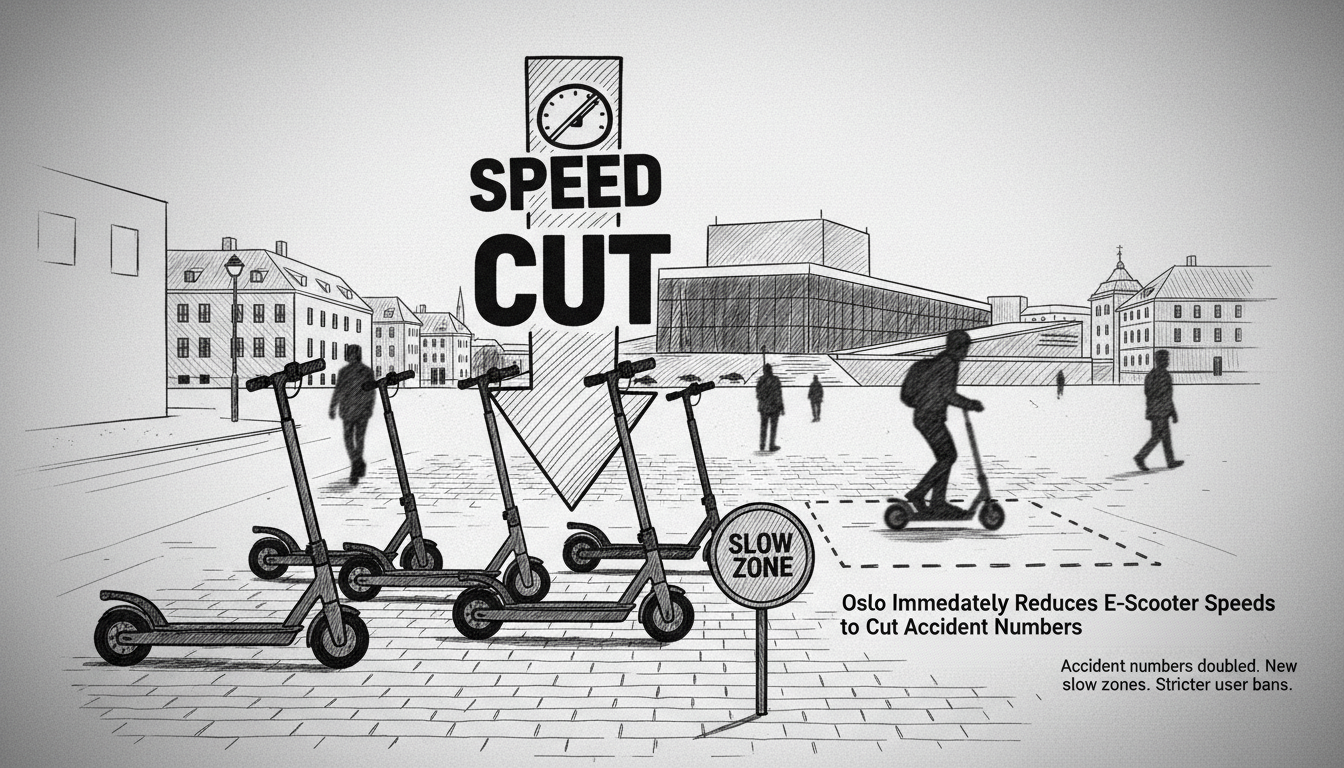Oslo city council has reached an agreement with e-scooter companies Voi, Ryde and Bolt to immediately reduce speeds across the city. The measures aim to tackle reckless and illegal e-scooter use following a sharp rise in accidents.
Transport Councilor Marit Vea confirmed the changes take effect immediately. Maximum legal speed for e-scooters in Oslo remains 20 km/h, but new restrictions will automatically slow scooters in busy areas.
What changed? The city doubled available rental e-scooters from 8,000 to 16,000 earlier this year. Accident numbers skyrocketed immediately after. Over a thousand people received treatment for e-scooter injuries in Oslo this year alone. That represents more than double last year's figures.
The three companies presented their safety plan after meeting with city officials. Company leaders stated they want to be part of the solution, not the problem. They emphasized taking social responsibility seriously through these new measures.
Key safety measures now in effect:
All users receive instructions prohibiting sidewalk riding before starting trips
Slow zones automatically reduce speeds at Langkaia, Aker Brygge, Stortorvet, Lille Grensen and Spikersuppa in central Oslo
Users who consistently park incorrectly face fines and automatic rental bans
Lower thresholds for suspensions mean 4,000 users will be banned before New Year
The transport councilor welcomed the companies' serious response to feedback. Officials will closely monitor whether reduced speeds, acceleration limits and stricter user requirements actually improve safety and reduce accidents.
Vea said the most important outcome will be people genuinely feeling safer moving around the city. She believes the council is finally gaining control over rental scooters after implementing marked parking spots and increased fines.
But private e-scooters present the next challenge. The transport councilor called privately owned e-scooters almost completely unregulated compared to rental vehicles. She wants national government intervention including higher age limits and police crackdowns on illegal modifications.
Opposition politicians say the measures are overdue. They've criticized the council for months of inaction while watching the e-scooter chaos they created by doubling scooter numbers.
The new safety measures represent a step in the right direction but fall short of what's needed, according to critics. Traffic safety organizations have been clear: more scooters mean more accidents. Reducing scooter numbers remains essential for genuine safety improvement.
Between 2020 and 2024, twelve people died in e-scooter accidents across Norway. This summer saw two new fatal accidents in Oslo, including a man in his late twenties hit by a truck in June.
The effectiveness of these new speed reduction measures will be evaluated next spring. Company representatives say they now need to deliver on expectations.
This situation highlights the difficult balance cities face between green mobility innovation and public safety. Oslo's experiment shows that rapid expansion without adequate safety measures inevitably leads to problems that require urgent correction.
